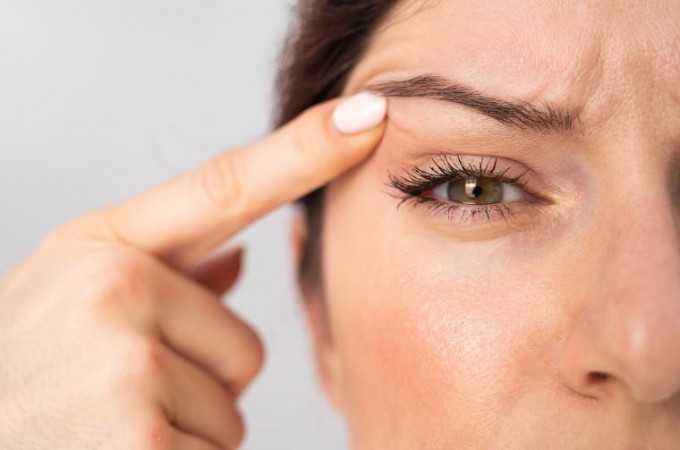
Eye twitching, medically known as myokymia, refers to the involuntary contraction of the muscles around the eye. While often benign and self-limiting, persistent or severe eye twitching may indicate underlying health issues. In this detailed exploration, we will delve into the various causes of eye twitching and practical strategies for prevention and management.
Causes of Eye Twitching:
Muscle Movement Irregularities:
Eye twitching is closely linked to irregularities in the movements of the muscles responsible for eyelid functions. These movements, resembling the fluttering of eyelids, can occur involuntarily and may be influenced by factors such as strain, tension, or discomfort. Understanding the dynamics of these muscle movements provides insight into the root causes of eye twitching.
Stress:
Stress is a ubiquitous factor contributing to a range of health issues, including eye twitching. High-stress levels trigger physiological responses that affect muscles throughout the body, including those around the eyes. Chronic stress can lead to persistent eye twitching, making stress management crucial in alleviating this symptom.
Sleep Deprivation:
The correlation between insufficient sleep and eye twitching is well-established. The eyes, like other muscles, require adequate rest for optimal function. Sleep deprivation disrupts this balance, potentially leading to increased occurrences of eye twitching. Implementing healthy sleep hygiene practices is essential for preventing this connection.
Caffeine Consumption:
Caffeine, a central nervous system stimulant found in various beverages and foods, can influence eye twitching. Understanding the impact of caffeine on the nervous system sheds light on how its consumption might exacerbate eye twitching. Gradual reduction or elimination of caffeine intake is a practical strategy for managing and preventing this manifestation.
Neurological Issues:
Neurological factors play a significant role in eye twitching. Disruptions in the intricate communication between nerves and muscles controlling eye movements can result in spasms. Exploring the neurological aspects of eye twitching underscores the importance of seeking medical evaluation to identify and address potential underlying conditions.
Eye Infections:
Infections affecting the eyes can introduce irritants that trigger eye twitching. Understanding the connection between eye infections and muscle spasms emphasizes the importance of maintaining eye hygiene and promptly addressing any ocular infections. This preventative measure contributes to overall eye health.
How to Prevent and Manage Eye Twitching:
Stress Management:
Stress reduction is a fundamental aspect of preventing and managing eye twitching. Techniques such as meditation, deep breathing exercises, and yoga offer effective strategies for mitigating stress. The relationship between stress levels and eye health underscores the need for integrating stress management into daily routines.
Regular Sleep Patterns:
Establishing and maintaining consistent sleep patterns is paramount for overall health, including eye health. Adequate sleep, typically ranging from 7-9 hours per night, facilitates proper muscle function and reduces the likelihood of eye twitching. Exploring the importance of sleep hygiene contributes to a comprehensive understanding of preventive measures.
Reduce Caffeine Intake:
The impact of caffeine on the nervous system influences eye twitching. Gradual reduction or elimination of caffeine consumption is a practical approach to managing this symptom. Educating individuals on caffeine sources and offering alternatives fosters informed decision-making regarding dietary choices and eye health.
Eye Muscle Relaxation:
Performing targeted exercises and massages for the eye muscles contributes to their relaxation. Recognizing the significance of eye muscle relaxation in preventing spasms emphasizes the value of regular breaks from screen time and adherence to the 20-20-20 rule. Incorporating these practices into daily routines promotes eye health.
Consultation with a Healthcare Professional:
Persistent or bothersome eye twitching warrants professional evaluation. Consulting healthcare professionals, particularly eye specialists or neurologists, is crucial for identifying underlying health issues. Understanding the role of medical professionals in the diagnostic process empowers individuals to seek timely and appropriate care.
In conclusion, comprehending the multifaceted causes of eye twitching allows for a more nuanced approach to prevention and management. By addressing muscle irregularities, managing stress, prioritizing sufficient sleep, regulating caffeine intake, promoting eye muscle relaxation, and seeking professional advice when needed, individuals can actively contribute to their eye health. This detailed exploration serves as a guide for informed decision-making and proactive measures to minimize the impact of eye twitching on overall well-being.
Revitalize Your Mind and Body with Simple Three Yoga Exercises
Know The Surprising Health Benefits of Sleeping Without a Pillow